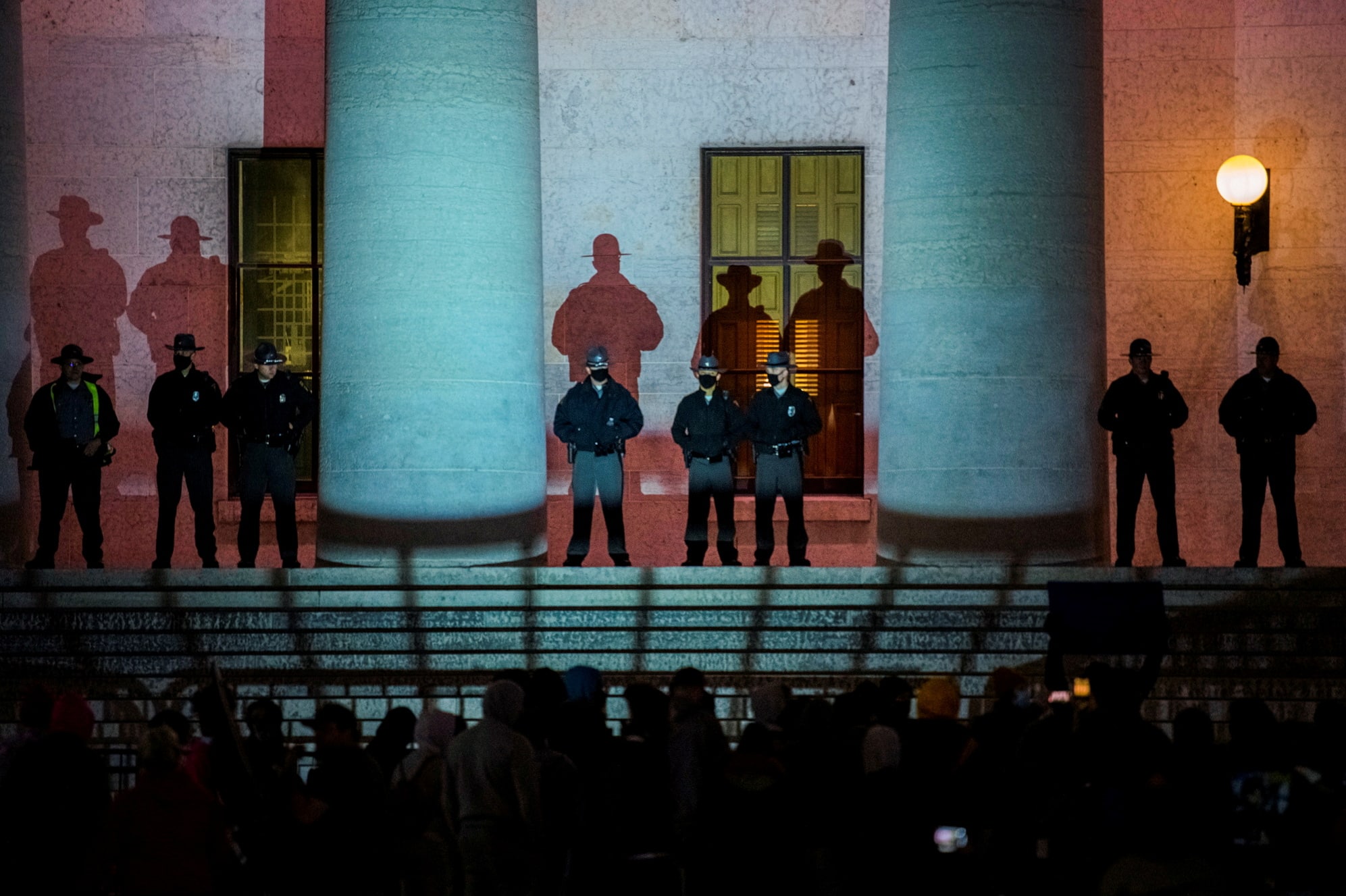State investigators in Columbus, Ohio, on Wednesday were probing the fatal police shooting of a Black teenage girl in a confrontation caught on body-camera video that appeared to show her holding a knife and lunging at two people.
The girl, identified by police as 16-year-old Ma’Khia Bryant, was shot on Tuesday around the same time a Minneapolis jury convicted a white former police officer of murdering George Floyd last year by kneeling on his neck.
Her shooting triggered immediate protests in Columbus, Ohio’s state capital, just as the announcement of the guilty verdict in the Floyd case brought relief and jubilation to the Minnesota city.
Interim Police Chief Michael Woods identified the officer who shot Bryant as Nicholas Reardon, who was hired in December 2019. It appears from the video that he is white and that he fired four shots at Bryant. Woods said Reardon “would be taken off the street” pending an investigation.
A spokeswoman for Franklin County Children Services said Bryant was a foster child in the agency’s care.
Bryant’s aunt, Hazel Bryant, told the Columbus Dispatch newspaper that the teenager had become involved in an altercation with someone at her foster residence.
“She was a good kid, she was loving,” the aunt told reporters on Tuesday, according to a video posted to Twitter. “She didn’t deserve to die like a dog on the street.”
Hazel Bryant could not immediately be reached on Wednesday.
White House press secretary Jen Psaki told reporters that President Joe Biden had been briefed on the “tragic” shooting.
“She was a child. We’re thinking of her friends and family and the communities that are hurting and grieving her loss,” Psaki said.
The Ohio Bureau of Criminal Investigation (BCI) has opened an inquiry into the incident, which began when officers responded at 4:44 p.m. ET (2044 GMT) to a 911 emergency call from someone who reported an attempted stabbing at a home on the city’s southeast side, Woods said.
BODY-CAMERA VIDEO
In a rare move for a law enforcement agency, Columbus police quickly released Reardon’s body-camera video of the incident, which shows Bryant apparently trying to stab two women.
Columbus Mayor Andrew Ginther told reporters on Wednesday that the city did so in the interest of transparency and would release more videos of the event in the days and weeks ahead.
“It’s very important to be as transparent and responsive as possible,” Ginther said. “The public deserves to know what happens.”
The video shows police driving up to a chaotic scene, with several people gathered on a front lawn. Bryant, brandishing a knife, charged toward one person who fell backwards, and then lunged at a second person as police shouted, “Get down!”
A slow-motion replay shows the second victim stumbling backward against a car parked in the home’s driveway as Bryant raises the weapon as if about to stab her, and Reardon fires what sounds like four shots.
Bryant immediately collapses against the parked car and onto the ground, and the weapon, which appears to be a kitchen knife, is seen lying on the pavement near her as an officer crouches at her side to render medical aid. She was taken to Mount Carmel East Hospital and pronounced dead just before 5:30 p.m., local TV station WSYX reported.
Hundreds of Ohio State University students staged a sit-in and marched through the city on Wednesday to protest Ma’Khia’s death at the hands of police, demanding that the university sever ties with the Columbus police department.
Around the time the body-camera video was made public on Tuesday night, a crowd of protesters gathered outside the city police headquarters, chanting, “Black Lives Matter” and “Black Girls Matter,” according to video posted to Twitter.
“When officers are faced with someone employing deadly force, deadly force can be the response the officer gives,” Interim Chief Woods told reporters on Wednesday. He declined to comment specifically on the case pending the BCI investigation.
“It’s a tragedy, there’s no other way to say it,” he added.
(Reporting by Gabriella Borter; additional reporting by Trevor Hunnicutt; Editing by Jonathan Oatis and Howard Goller)
























